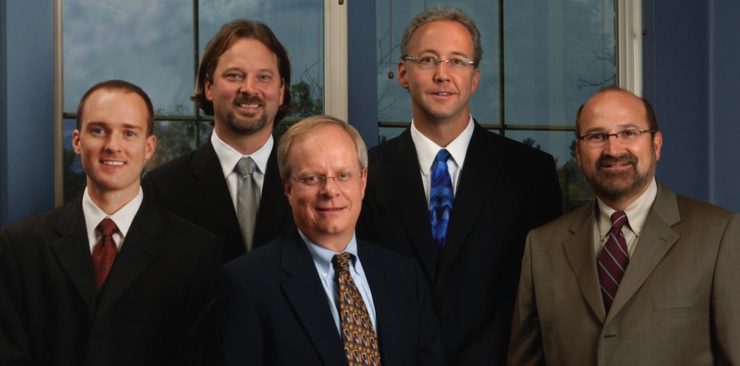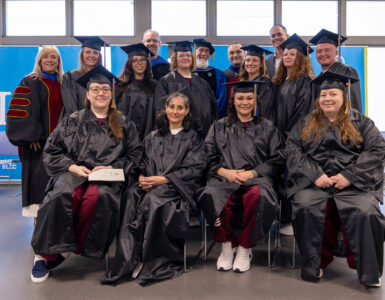Each year, tens of thousands of lives could be saved if people had a colonoscopy. There are several reasons many people avoid the procedure even though it could save your life.
Dr. Kyle Barnett from Granite Peaks Gastroenterology debunks the five biggest myths that keep people away from the procedure.
According to the American Cancer Society (ACS), colorectal cancer is the second leading cause of cancer-related deaths in the United States, killing some 50,000 men and women a year. It is also one of the easiest cancers to screen for and diagnose, which exasperates gastroenterologists, because a painless 15-30 minute colonoscopy procedure every 10 years (5 years if have pre-existing risk factors) could prevent months of chemotherapy, surgery, or sadly succumbing to the disease.
The number one risk factor is advancing age−more than 90 percent of cases occur in people aged 50 or older. An estimated 60 percent of colorectal cancer deaths could be prevented if all men and women aged 50 years or older were screened routinely.
Myth #1 It is going to hurt.
Ten years ago the screening process for cancerous polyps may have been more uncomfortable, but now with more advanced surgical tools, technology, and effective sedation patients don’t feel a thing during the procedure.
Patients sleep through the exam and wake up 15 to 30 minutes following it with no recall. The only side effect may be some bloating. “Four out of five times, my patients wake up and say, ‘that was it? That was nothing,'” says gastroenterologist David Schmidt, M.D from Granite Peaks Gastroenterology.
The part of the colonoscopy that patients remember is the prep necessary the evening before the procedure. A laxative mixed in with a favorite drink cleans their system out, demanding that they be near a bathroom. This is a hassle but not uncomfortable. Side effects of some laxatives used to be nausea, but this is no longer the case.
“I tell my patients I’ve done this procedure twice, so I can relate to their anxieties. Then I address their concerns from both a doctor and patient perspective,” says gastroenterologist Dr. Barnett.
Myth #2 It is embarrassing.
Yes, like other screenings−pap smears, mammograms, prostate exams−a colonoscopy involves private parts of your body. Feeling timid or deterred from this “invasion of privacy” should be countered with the fact that colon cancer itself is far more intimidating and invasive than a 15-minute colonoscopy.
When you perform eight colonoscopies a day, the procedure is routine. “This is what we do every day—it’s not novel to us. And we do our best to maintain the privacy and dignity of the patients,” says Dr. Schmidt, providing a gastroenterologists perspective on the procedure. “The point is to save lives.”
Typically present during the procedure is a doctor, a nurse who is overseeing the anesthesia, and a technician assisting with equipment.
Myth #3 I don’t have any symptoms, so I don’t need a colonoscopy.
Once you have the symptoms, you have a more advanced cancer. You do not want to wait until you have blood in your bowel movements, stomach pain that doesn’t go away, anemia, tiredness or unexplained weight loss.
If you have a family history of colon cancer (either one first-degree relative or two second-degree relatives), then you should be receiving colonoscopies ten years before the age that your family member was diagnosed or at 40 years of age—which ever comes earlier. Otherwise, everyone over the age of 50 should have this procedure every 10 years or every five if you have a family history.
In most cases, colorectal cancer develops from precancerous polyps (abnormal growths) in the colon or rectum. Screening tests can find precancerous polyps, so they can be removed before they turn into cancer. Screening tests also can find colorectal cancer early, when treatment works best. “We see many patients who, if they had been screened at the recommended time, the vast majority would have been caught at the pre cancerous or early cancer stage,” confirms Dr. Barnett.
While you can’t dodge getting older, people who exercise, eat a diet low in animal fat (and processed meats) and high in fiber, avoid smoking and heavy alcohol consumption, maintain a healthy weight, and do not have inflammatory bowel disease all are less likely to get colon or rectal cancer.
Myth # 4 I don’t have time for surgery.
A colonoscopy is a minimally-invasive procedure, it is not surgery. There is no operation or stitches involved. The time out of your life involves one day, less if exam is done in the morning. People often work the day before, digesting only liquids, and then take the laxative that evening. The procedure takes 15-30 minutes and the patient needs another 15-30 minutes to wake up from sedation.
Improved technology and tools have decreased the likelihood of complications and provided a quicker and more seamless procedural process. The sedation used now by some gastroenterologists in Utah is state-of-the art allowing people to wake up quickly and with little lag affect.
Myth # 5 It will be expensive and involve a hospital visit.
Most insurances cover colonoscopies. If you don’t have insurance or have a high deductible, the cost can be decreased significantly if the procedure is done in-office so there is no facility/hospital fee.
For more information, contact Granite Peaks GI
(801) 727-2029
Granite Peaks Gastroenterology is a single specialty physician practice solely dedicated to the treatment of gastrointestinal, biliary, pancreatic, and liver disorders. Founded in 2007 by 3 veteran Utah gastroenterologists, it is a technically advanced clinic with fully integrated electronic medical records. The team of five physicians share 80 years of accumulated experience in gastroenterology with over 100,000 combined colonoscopy procedures. The Granite Peaks specialists are trained in all modalities of the GI tract, from the esophagus to the colon and are the only gastroenterology practice located in the Sandy/Draper area and offers in-office procedures as well as comprehensive care at neighboring hospitals. The Granite Peaks Endoscopy Center is a state-of-the-art freestanding ambulatory surgery center that is fully accredited state-licensed and Medicare certified.















Add comment